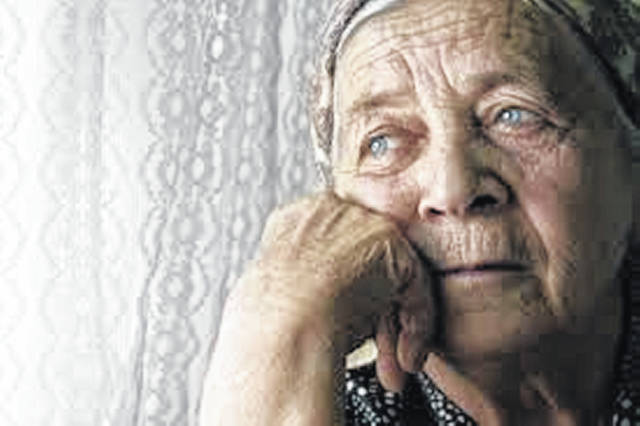
PREBLE COUNTY — COVID-19 is not the only fight we have been managing with our seniors. Unfortunately, senior domestic violence is an additional concern to protect our seniors from.
October is Domestic Violence Awareness Month. I know this is not a topic that we want to talk about, however, it is an essential topic to address. Allow yourself to be educated and informed, and I hope that you, the reader, never has to deal with this issue on any level, or on any angle.
Abuse in later life comprises of financial, physical, sexual, and emotional abuse, abandonment, and neglect.
Perpetrators are people with whom the victim has an expectation of trust, particularly spouses, intimate partners, adult children, grandchildren, other family members, and non-related caregivers. Perpetrators typically, but not exclusively, abuse older adults in their places of residence.
Did you know?
- Every year, approximately 4 million older Americans are victims of physical, psychological and/or other forms of abuse and neglect.
- Older adults who require assistance with daily life activities are at an increased risk of being emotionally abused or financially exploited.
- Approximately 50 percent of older adults with dementia are mistreated or abused.
- An estimated 13.5 percent of older adults with dementia are mistreated or abused.
- Victims of elder financial abuse lost an estimated $2.9 billion in 2011.
- 76.1 percent of physical abuse toward older adults is perpetrated by a family member
- A majority of elder sexual abuse cases involve female victims and male perpetrators.
- Only one out of every 24 cases of elder abuse is reported.
- Only 15.5 percent of elder sexual abuse is reported to police.
Abuse in later life has a devastating impact on victims and can result in any or all of the following: loss of independence, security, life savings, health dignity, and can even be deadly.
Research indicates that older adult victims of abuse have shorter lifespans than their peers who do not experience violence. Abuse in later life can cause both physical and psychological harm.
Psychological harms associated with abuse in later life include depression, stress, helplessness, alienation, guilt, shame, fear, and anxiety.
Emotional Abuse
- Embarrassment and humiliation
- Controlling behavior (restricting access to telephone, transportation, and other resources)
- Damaging or destroying property
- Social isolation
- Disregarding or trivializing needs
Physical Abuse
Physical abuse of an elder involved injury, assault or inappropriate restraint.
- Broken bones, fractures, sprains, and/or dislocations
- Burns from cigarettes, hot water or appliances
- Abrasions on arms, legs, or torso resembling ropes or restraints
- Bruised, including bilateral and “wrap around” bruises
- Unexplained injuries or explanations that do not “fit”
- History of similar injuries and numerous or suspicious hospital visits
- Delay between onset of injury and seeking medical attention
- Neglect of bedridden adults’ injuries
Sexual Abuse
Elder sexual abuse is any non-consensual sexual contact
- Non-consensual oral, anal or vaginal intercourse
- Forced viewing of pornography
- Forced listening of sexual accounts
- Intentional touching of the genitalia, anus, groin, breast, mouth, inner thigh, or buttocks
Financial Abuse
- Fraud
- Forced property transfers
- Misuse of theft of money/possessions
- Use of deception to coerce or convince a victim to surrender finances or property
What can I do about abuse in later life?
Now that you are more familiar with abuse in later life, here are three concrete steps towards change you can take today:
- If someone tells you they are a victim of abuse, believe him or her! Encourage her/him to reach out to the local Domestic Hotline at 937-456-6891. We at the Preble County Council on Aging can also help direct individuals, you can call 937-456-4947
- Talk to the people in your life – whether or not they are aged 60 and over – to raise awareness and start conversations about abuse in later life.
- Connect with an organization like the National Clearinghouse of Abuse in Later Life and the National Council on Aging Care to learn how you can get involved with volunteering, donating, or simply signing up to receive email newsletters.
Reference: https://rb.gy/nydqqb.
To stay up to date on all of our activities, trips and senior news sign up to receive our bi-monthly newsletter the “Senior Scene.” Membership at the Senior Center is $10 a year. In addition to other benefits, members automatically receive our bi-monthly “Senior Scene” newsletter which features all our latest news and activities, additional benefits are discounts on trips and select activities.
Like our Facebook Page at https://rb.gy/sidcl2 or give us a call at 937-456-4947. Visit our website at www.PrebleSeniorCenter.org.


